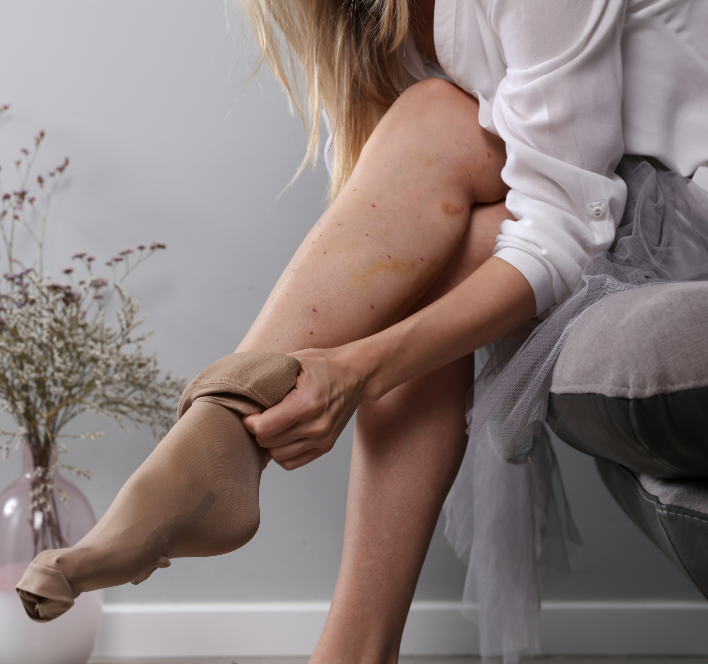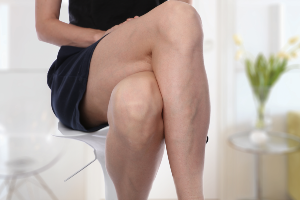Neck and back pain can severely hinder the way we live our daily lives. It can be hard to enjoy your day when something as simple as sitting in the wrong chair can cause you…
Nobody wants blue, bulging, or twisted veins, otherwise known as varicose veins. These veins can be seen and felt beneath the surface of your skin. If you’ve been diagnosed with varicose veins, you’re probably trying to learn what’s fact versus what’s fiction. Here are eight myths associated with varicose veins.
If you’d like to learn more about varicose veins or believe you may suffer from them, a specialist can tell you more about them and how they may affect your daily life.
Myth #1: Varicose Veins Are Only a Cosmetic Problem
Spider veins are a smaller version of varicose veins that are a cosmetic issue. While varicose veins are visible on your legs or ankles and may bother you for cosmetic reasons, these veins can impact your health and may cause swelling, increase your risk of blood clots, or cause excessive bleeding.
Another common myth associated with cosmetics is that surgery will only improve the appearance of your legs and ankles. Surgery will indeed improve the physical appearance of veins, but symptoms like discomfort, heaviness, and swelling often get better with treatment as well.
Myth #2: Crossing Your Legs Causes Varicose Veins
Crossing your legs and wearing tight shoes or pants do not cause varicose veins. Those conditions may have exacerbated the veins, but external pressure does not cause veins to bulge. Instead, it’s more likely due to defective valves in veins or weakened vein walls.
Myth #3: Working on Hard Surfaces All Day Will Cause Varicose Veins
A widespread myth is that those who work on hard surfaces all day like concrete have a higher chance of developing varicose veins. Working on hard surfaces can contribute to musculoskeletal pains but has minimal effect on varicose veins.
Pressure does increase with inactivity, like sitting or standing for long periods. Taking short walks or doing calf exercises throughout the day can help relieve symptoms.
Myth #4: Exercise Makes Varicose Veins Worse
Exercise typically decreases pressure in the legs, which should reduce the chances of varicose veins forming. Leg pain can occur in some patients, but it’s more often associated with arterial disease or vein obstruction from blood clots or other abnormalities.
 Myth #5: Pregnancy Causes Varicose Veins
Myth #5: Pregnancy Causes Varicose Veins
Like crossing legs, pregnancy may exacerbate varicose veins, but it won’t be the direct cause of them. Most varicose veins that appear during pregnancy fade after delivery. Treatment can actually be completed in between pregnancies.
Myth #6: Only Older Women Have Varicose Veins
Indeed, varicose veins occur mainly in women. But men have a chance of having them as well. The risk of developing these types of veins increases with age, but even young adults can develop them. Close to a third of adults have varicose veins.
Myth #7: Insurance Does Not Pay for Vein Treatment
Treatment all depends on your coverage, but many plans tend to cover it if you’re experiencing pain, swelling, or bleeding. However, insurance companies may require you to try compression socks or stockings before surgery. Compression socks may be necessary for up to six weeks after surgery as well. Massages can also reduce swelling or discomfort, but it alone won’t make varicose veins go away.
Myth #8: Varicose Veins Will Return After Surgery
Varicose veins will not always return after treatment. There is a higher risk of veins returning after surgery, but the minimally invasive techniques offered today have a lower risk of veins reoccurring.
Visit the Specialists at Orthopedic and Laser Spine Surgery
If you’re suffering from varicose veins, consider visiting the expert team at Orthopedic and Laser Spine Surgery. We are proud to perform some of the most contemporary surgical treatments using state-of-the-art equipment. Our surgeries are non-invasive, allowing patients to get back to their normal activities sooner.
Our award-winning, board-certified medical team of neurologists, neurosurgeons, orthopedic specialists, and physicians use a patient-centered approach when creating treatment plans. Give us a call at (855) 853-6542 or complete our online contact form today!


 Myth #5: Pregnancy Causes Varicose Veins
Myth #5: Pregnancy Causes Varicose Veins